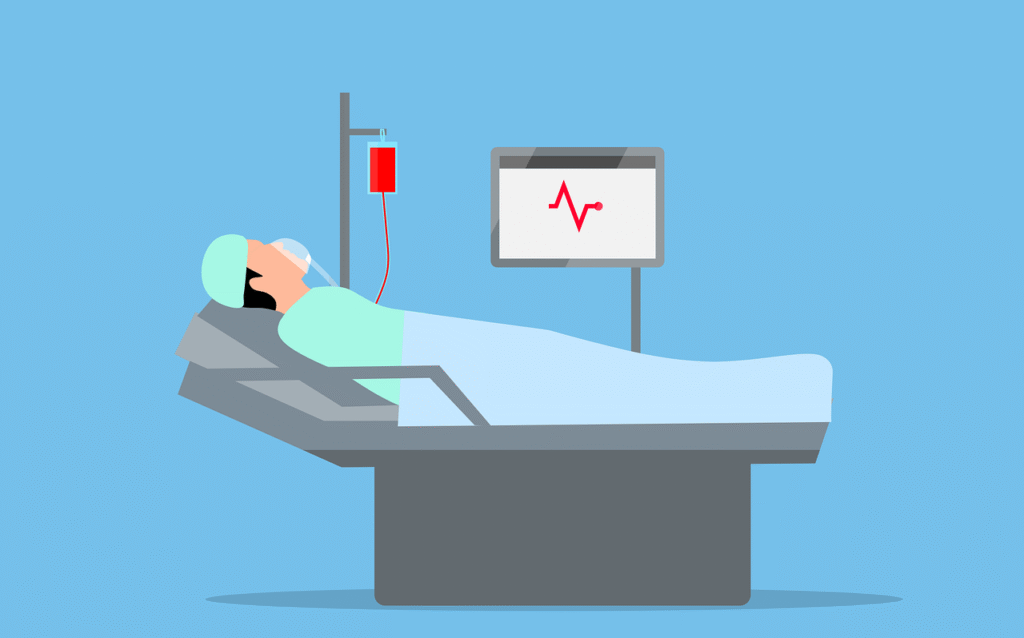
I take a lot of calls from people who want to tell me about their wills. They will talk about how their will does one thing or another, but often they are mixing and matching the will with other estate planning documents. I suspect many times people keep all their estate planning documents together in one folder, binder, or location, and that these people may not distinguish between the different estate planning documents like I would as an attorney. I don’t blame people for thinking all the documents that are kept in one place are all part of the will, but the necessary precision of what documents they are discussing can make a big difference to the law, or to an attorney, judge, government official, or representative of a financial institution that is relying upon a document.
Most often, people will tell me they have a will, and that the will covers everything. I find I must inform these people that a will only controls what happens to assets after the person passes away, and doesn’t give someone control of assets prior to a person’s passing. Certainly knowing who will control your assets and pass them on to your named beneficiaries or heirs is vital to have, but a will alone is probably not enough. If you were to become incapacitated at some point during your life, your will does not allow someone else to make decisions for you. That would need to be covered by a financial power of attorney, or a medical power of attorney. These are the documents that give someone power to make decisions on your behalf if you are incapacitated. There is even the document to set up to make your wishes known about whether you want to be kept alive by machines if you will not recover – this one is called a living will or advanced directive. These documents are part of a complete estate plan, even if they aren’t the will itself. A will is vital for everyone, but the other documents are necessary for your estate plan to be complete.
No Matter What – You Need a Will
 A will is the foundational document of any estate plan. The will is the document that describes who should receive your assets when you pass away. The will also dictates who will be in charge of distributing the assets, known as a personal representative in Colorado. Of course, to activate the powers in a will, the will needs to be filed with the probate court and the personal representative needs legal permission from the court to act on the deceased person’s behalf. The will also describes who should be named as a guardian to care for and raise your children if they are minors. These functions of a will are absolutely vital to be prepared for when you pass away. As such, everyone needs a will.
A will is the foundational document of any estate plan. The will is the document that describes who should receive your assets when you pass away. The will also dictates who will be in charge of distributing the assets, known as a personal representative in Colorado. Of course, to activate the powers in a will, the will needs to be filed with the probate court and the personal representative needs legal permission from the court to act on the deceased person’s behalf. The will also describes who should be named as a guardian to care for and raise your children if they are minors. These functions of a will are absolutely vital to be prepared for when you pass away. As such, everyone needs a will.
Even if you have a trust, you need a will. If you have a trust, your trust will probably be the main document that distributes assets, but having a will still covers assets that are not owned by the trust. Often, cars, furniture, and other household items are not titled to the name of the trust. A will that accompanies a trust is known as a pour over will, which dictates that any assets you own personally will be added into the trust by the pourover will. If your assets are below the limits established by the Courts – $82,000 as of 2025 – then the transfer can happen by affidavit, and full probate proceedings are not necessary. The collection of assets by affidavit is a simplified procedure established by the Colorado courts to reduce the caseload they manage, but as a side effect, it makes your life easier!

Even With A Will, You Need Financial and Medical Powers of Attorney
As I previously briefly mentioned, a will only controls what happens to assets after you pass away. A will does not give any authority to someone to act on your behalf if you are still alive. If you are alive, but become mentally incapacitated (to the degree that you are unable to make decisions on your own), then you need to have a financial power of attorney and a medical power of attorney that gives someone the ability to make decisions and handle your affairs during your incapacity. A financial power of attorney allows your agent under the financial power of attorney to access your bank accounts, pay your bills, handle investments, and talk to companies or other individuals who hold your assets or provide you services. It gives your agent the ability to handle the financial matters and details of your life while you recover, so that things like your mortgage, water will, power bill, or other similar life necessities do not get interrupted. Having someone you trust who is properly authorized to act on your behalf is vital for anyone to have, since nobody knows when they may become incapacitated.
I have had many clients who tell me that they are the agent under a financial or medical power of attorney, but that a bank, or other financial institutions will not give them access to the account after someone has died. I also get to inform them that a power of attorney usually ends when someone dies. After death, the personal representative from the will is the proper person to access the bank or other financial accounts. The personal representative needs property authorization from the probate court to act, and the agent under a financial power of attorney can certainly be the same person as the personal representative, but the proper document gives authority at the proper time – power of attorney while alive, and will after death. A will is necessary after you have passed away and a financial power of attorney is necessary while you are alive.
The same holds true for a medical power of attorney. If you are incapacitated, you need to have a medical power of attorney to authorize someone to make medical decisions on your behalf while you are incapacitated. This could be as simple as giving informed consent for a medical procedure, or it could be as complicated as choosing between treatment options for injuries or illnesses. You really want to have someone you trust appointed to act as your agent, as you don’t just want anyone handling your medical decisions! You want someone trusted, but also able to make important decisions during difficult or stressful times.

You Need a Living Will (An Advanced Directive), Too!
A living will, or advanced directive, is the most misnamed document that I write. It really should be called the “do we pull the plug, or not” document, but living will and advanced directive sound nicer. This document allows you to decide for yourself if you want to be kept alive by machines if no hope of recovery is possible. Many people don’t want to put that level of responsibility on their agent under a medical power of attorney, so they use a living will to decide for themselves. In a living will you can decide if you want to be let go immediately, after a certain period of time, or after a certain set of loved ones can visit to say their final good-byes. By setting up a living will, your wishes on how to handle an end of life situation can be carried out, without putting that burden on anyone else. You make your own decision and your loved ones can follow what you want.
Each Document Has Its Own Purpose and All Are Needed
Each document in an estate plan has a separate and distinct purpose, and an estate plan is not complete without all of them. You need a will. You need a financial power of attorney. You need a medical power of attorney. You need a living will / advanced directive. Some people may call all of these documents different parts of a will, but they are separate and distinct. Each document covers a different set of circumstances that comes up in your life, and all of them work together to ensure you are covered for the end of your life and situations that come up at that time. You don’t want to be unprepared. To start getting prepared and meet with an experienced estate planning attorney to get your estate plan in place, please click the button below.

 720-730-7274
720-730-7274









